2018 China Internet: Sharing economy leads the world in overtaking artificial intelligence corners.


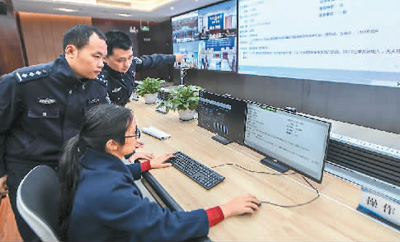
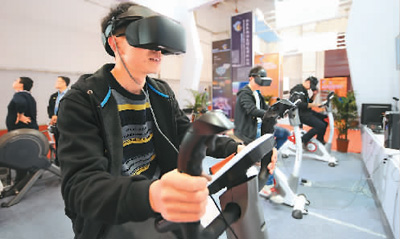
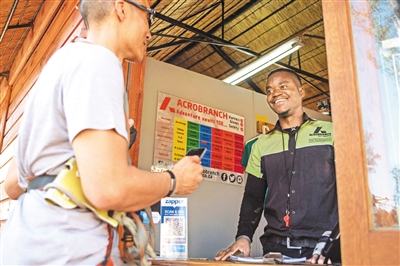
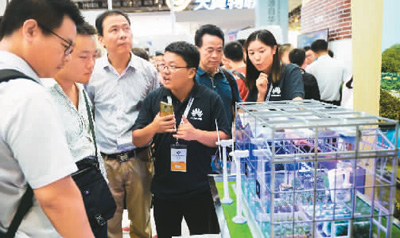
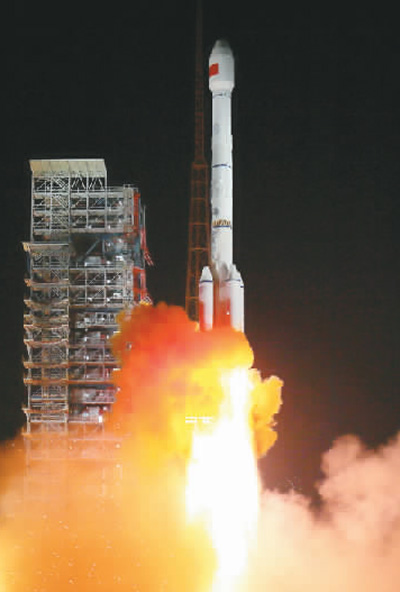
In the past 2017, the Internet in China has followed the wind and stepped on the waves, bravely standing in the forefront, and the good news has spread frequently. High-speed rail, Alipay, bike-sharing and online shopping have become the "four new inventions" in China in the eyes of foreigners. Artificial intelligence has sprung up everywhere, and the Internet of Things, big data, virtual reality technology and the real economy have been further integrated. Emerging industries are booming, and traditional industries are welcoming opportunities for change. Overseas Network invited several experts to interpret this series of hot topics and look forward to the Internet in China in 2018. There is reason to believe that in 2018, China Internet will compose a new chapter and continue to write a chapter!
Sharing economy leads the world.
Unconsciously, the sharing economy has become a part of China people’s daily life: sharing trips, sharing charging treasures and sharing houses … … It is worth mentioning that bike-sharing’s service originated in China, which is a "Chinese-style innovation" in a complete sense. Both the design level and the manufacturing technology are typical representatives of "Created by China" and "Made by China".
Li Yongjian, director of the Internet Economy Research Office of the Institute of Finance and Economics of China Academy of Social Sciences, said that the rapid development of the sharing economy in China has not only resulted in the continuous expansion of the economic scale, but also the emergence of various innovative business models. In the field of transportation, participants in the sharing economy continued to grow, with bike-sharing users growing the fastest; The sharing economy in accommodation has also developed rapidly. In 2017, the transaction scale of China’s shared accommodation market is expected to reach 12.52 billion yuan, an increase of 42.6% compared with 2016. In addition, shared cars have also begun to enter a period of rapid development. A number of shared car platforms have begun to appear in Beijing, Shanghai, Guangzhou, Chongqing and other places, with more than 750,000 EVCARD users. In September 2017, Shijingshan District of Beijing proposed to build the city’s first shared car demonstration operation area.
Li Yongjian said: "On the basis of absorbing advanced foreign business models, China’s sharing economy has expanded overseas and formed international influence. Since 2015, many bike-sharing enterprises such as ofo sharing bicycles and mobike have laid out overseas markets. On June 13th, 2017, mobike announced its landing in the 100th city in the world — — Manchester, England; Ofo has now entered 20 countries and more than 250 cities; Didi’s internationalization has accelerated, and it has invested in Brazil’s 99 car, India’s Ola (Euler), South Africa’s taxi application Taxify, Singapore’s Grab taxi software, Uber and Ford in the United States, and Careem in the Middle East and North Africa (Chinese meaning ‘ Generous ’ ) and other seven global mobile travel service platforms, the cooperation network has touched more than 1,000 cities in North America, Southeast Asia, South Asia and South America, covering 60% of the world’s population. Bike-sharing has become a new business card for China. "
Artificial intelligence overtaking in corners
Turn on the voice of the mobile phone and you can talk to the mobile robot; Open the input method, you can convert the voice into text; Open the electronic map, you can get the real-time road conditions and the best travel plan … … Artificial intelligence has changed people’s lives in every tiny way. According to the consulting data of Ai Media, the scale growth rate of artificial intelligence industry in China reached 43.3% in 2016, exceeding 10 billion yuan, and it is expected to reach 15.21 billion yuan in 2017 and 34.43 billion yuan in 2019.
Dr. Wu Jianlong, the Key Laboratory of Machine Perception and Intelligence of the Ministry of Education in Peking University, believes that China has achieved initial success in the field of artificial intelligence. He said: "China has made great breakthroughs in some fields of artificial intelligence. Taking computer vision as an example, computer vision is an important branch of artificial intelligence, and its purpose is to make computers or machines understand the outside world like human beings. Computer vision includes many practical tasks, such as face recognition, object detection and segmentation, and scene classification. With the development of deep learning, the existing technical methods have achieved excellent results in the above related tasks. For example, on the standard face recognition data set LFW (face database labeled in natural scenes), the recognition accuracy of the existing algorithms has reached 99.8%, which exceeds the recognition accuracy of human beings. In addition, in the Tianchi AI (Artificial Intelligence) Medical Competition held by Alibaba, the intelligent diagnosis of lung nodule images has reached the level of professional doctors, and the detection accuracy of tiny nodules of 3 mm and above exceeds 95%. The outstanding achievements in computer vision have further promoted the development of artificial intelligence, which has been fully reflected in related applications such as driverless, smart cities and medical images. "
Wu Jianlong said that in the future, artificial intelligence will mainly expand in four directions: driverless, smart city, medical image and speech recognition. China’s development in these fields has reached the forefront of the world, and we have reason to believe that in the near future, China is expected to "overtake in corners" in artificial intelligence.
Big data develops in depth.
According to the "2017 China Big Data Development Survey Report" published by the ICT Institute of the Ministry of Industry and Information Technology, the growth rate of China’s big data market will remain above 30% from 2017 to 2020. But in fact, some insiders believe that the development speed of China’s big data industry in 2017 has exceeded expectations. Su Meng, chairman and CEO of Percent Information Technology Co., Ltd. and former doctoral supervisor of Guanghua School of Management of Peking University, also agreed with this view. He said, "In fact, the growth rate of some excellent big data companies far exceeds this growth rate. Take the percentage company as an example. In 2017, the percentage market revenue increased by 300%, and its overall big data solution has been widely adopted in domestic public affairs, finance, media publishing, intelligent manufacturing, retail fast-moving and other fields. "
Taking the manufacturing industry as an example, in 2017, outstanding manufacturing enterprises in China have applied big data to R&D design, manufacturing, marketing, after-sales service and other links, achieving improved production efficiency, more accurate marketing effect and improved service experience.
Su Meng believes that, on the one hand, the global technology open source movement trend has promoted China’s big data companies to achieve breakthroughs in basic technology innovation, and China companies have gradually become the main force of big data technology innovation; On the other hand, China’s rich data resources and increasingly extensive application requirements make Chinese big data companies at the world’s leading level in the innovation of big data applications. In addition, the pace of deep integration between traditional industries and big data is accelerating, and big data is becoming a magic weapon for the transformation of traditional industries.
Su Meng is confident about the future development of the big data industry. He said: "The development of China’s big data industry cannot be separated from the support of policies. Percent companies seize ‘ Belt and Road ’ The market opportunity of digital construction in countries along the route took the lead in going to sea and became the first big data company in China to go overseas. In addition, the General Secretary of the Supreme Leader mentioned big data many times in the report of the 19 th National Congress, which made me more confident in the future development of the industry. "
Virtual Reality Transforms Industry
Since 2015, with the continuous introduction of new consumer technology products, VR (Virtual Reality) industry has become a hot spot. 2017 is called "the first year of VR industry". The integration of smart phones, mobile clients, mobile Internet and virtual products has not only brought earth-shaking changes to people’s lives, but also further transformed traditional industries and spawned a large number of emerging industries.
Experts in the industry pointed out that at this stage, the development of China’s VR industry is being promoted by users, technology, hardware, content, developers, channels, capital and other forces. A benign VR industry ecosystem has been initially established, and a whole industrial chain including tools and equipment, industry applications, content production, distribution platforms and related services is being formed.
From the national level, virtual reality industry, as a new strategic industry, has been highly valued by the state, and relevant policies, measures and planning schemes have been released in a high density. Various government departments have issued a large number of special policies for industrial development to encourage, support and promote the development of virtual reality industry.
Qiao Yueshan, deputy director of the Electronic Information Department of the Ministry of Industry and Information Technology, said at the recent International Virtual Reality Innovation Conference that the development of virtual reality industry can promote integration and innovation. Taking virtual reality as the industrial starting point can promote the cross-border integration of different fields, and then define new standards and technologies, and even split out subversive new products and markets. The development of virtual reality industry can promote industrial transformation, break the traditional closed and chimney industrial development framework, connect key enterprises in different fields of industrial chain in series, and realize the transformation from industrial single-point breakthrough to industrial ecological expansion. Developing virtual reality industry can prosper content application. Virtual reality has rich business forms, great industrial potential and strong social benefits, and VR applications are accelerating to penetrate into production and life fields. At the same time, he pointed out that in the future, it is necessary to strengthen cross-disciplinary technology reserves, enrich the effective supply of products, promote the application of virtual reality key industries and build industrial support service platforms to ensure the healthy development of virtual reality industry.
Mobile payment goes overseas
In May 2017, the Silk Road Research Institute of Beijing Foreign Studies University interviewed young people from 20 countries along the Belt and Road Initiative. The interview found that the first thing that surprised, envied and wanted to bring back to their country was mobile payment. "Indian version of Alipay" and "Thailand version of Alibaba", China’s mobile payment technology is going overseas and realizing localization, which has a far-reaching impact on the local area.
Professor Ouyang Rihui, vice president of China Internet Economic Research Institute, believes that the development of Internet finance in China is in a leading position in the world and is one of the main achievements of China’s digital economy. Mobile payment is the most mature internet financial model in China. After the city is fully developed, it is sinking into the rural market and expanding to overseas markets.
Ouyang Rihui said: "The entry of China’s mobile payment into overseas markets has impacted the overseas payment ecology. Mobile payment is the trend of payment development, and overseas payment institutions are also actively embracing changes. However, it is a very complicated question whether to develop their own mobile payment platform or accept payment institutions in China. China payment institutions can take advantage of the lack of development of overseas mobile payment institutions, vigorously promote cooperation with merchants, and cooperate with China in ‘ Belt and Road ’ Infrastructure construction in countries along the route, do a good job in the information infrastructure construction of mobile payment, and cultivate consumers’ usage habits. "
Ouyang Rihui believes that in the future, from a spatial perspective, China mobile payment institutions should do a good job in developing markets in developed countries such as Britain and the United States, and at the same time do a good job in market expansion in countries along the Belt and Road; From the point of view of cooperation objects, we should focus on the cooperation between merchants in areas with a large number of outbound tourists in China, first meet the needs of Chinese tourists, and then drive the payment changes of consumers in the host countries; Finally, we must thoroughly study the laws, regulations, customs and traditions of countries and regions, gradually expand the market in an open and cooperative way, and pay special attention to overseas information privacy and anti-monopoly issues.
Internet of Things enjoys a smart life.
In the Internet of Things era, the Internet of Things industry in China has entered the fast lane. In 2017, the Internet of Things industry in China developed by spurt. As Wang Zhengwei, secretary-general of Zhongguancun Internet of Things Industry Alliance and director of the Innovation Center, said: "If 2016 is the new first year of the Internet of Things, then 2017 is undoubtedly the year of the outbreak of the Internet of Things in China."
Wang Zhengwei believes that in 2017, China’s Internet of Things will accelerate into a new stage of "cross-border integration, integrated innovation and large-scale development", and trillions of new devices such as smart wearable devices, smart home appliances, intelligent networked cars and intelligent robots will compete to access the network, forming massive data and bringing explosive growth in applications. First of all, NB-IOT (Narrowband Internet of Things Based on Cellular Network) technology detonated the Internet of Things market. The NB-IoT core protocol standard first put forward by Huawei was adopted in 3GPP (3rd generation partnership project, a standardization organization established in December 1998), thus setting off the hot spot of the Internet of Things. Secondly, in 2017, the three major telecom operators made full use of their full power and stepped in strongly, which led to the new blue ocean of the Internet of Things, fully activating the Internet of Things market in China. At the same time, the Ministry of Industry and Information Technology issued the Notice on Comprehensively Promoting the Construction and Development of the Mobile Internet of Things (NB-IOT), clearly accelerating the deployment of the mobile Internet of Things. By the end of 2017, the NB-IoT network will cover major cities such as municipalities directly under the central government and provincial capital cities, and the scale of base stations will reach 400,000.
Wang Zhengwei said that the great development of the Internet of Things will not only further facilitate people’s lives, but also promote breakthroughs in other technologies and promote the development of all walks of life. He said: "The trillion-dollar vertical industry market of the Internet of Things is constantly emerging, which will promote the deepening of supply-side structural reform; The consumer market demand for Internet of Vehicles, health, home, intelligent hardware and wearable devices is more active, which will drive the continuous integration of the Internet of Things and other cutting-edge technologies; Technologies such as artificial intelligence, virtual reality, autonomous driving and intelligent robots will continue to make new breakthroughs. "